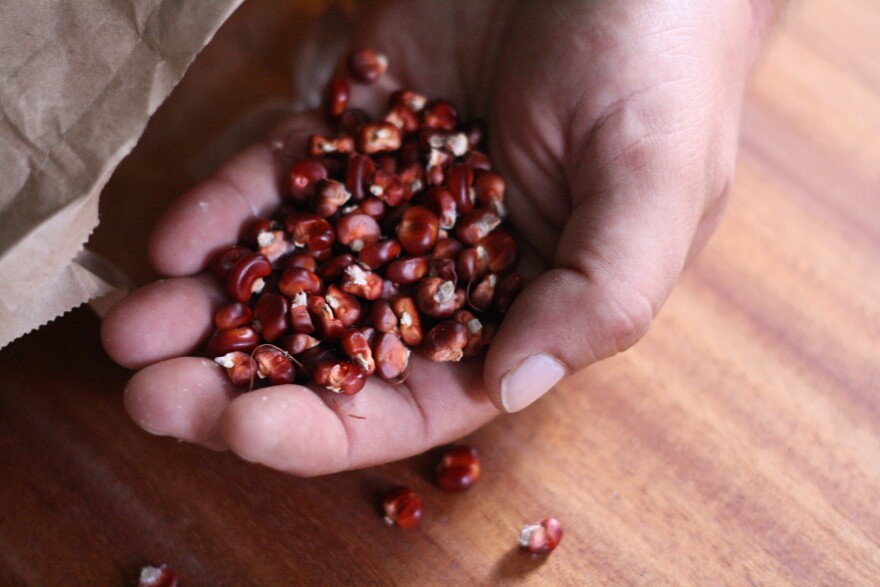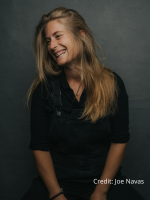The other day I finally put my garden to bed. While I ripped out the skeletons of tomatoes and tucked away eggplant cages for another season, I noticed some of my plants had gone to seed. I collected what I could, sealed some shiso and arugula seeds into envelopes, and thought of a grower named Natale Costa who I met a few months ago who warned me that seed saving can be addictive.
“It’s so easy. I guess that’s the thing, because you’re like Oh my God, I like this vegetable or fruit or whatever and you’re like, I could just save some seeds. And it’s like magic," he said. "I have some things I had like literally six seeds of, like a bean for example, and then you grow it and then you’re like now I have 50 seeds and then it’s like you can’t stop.”
Natale got into seed saving while living in Philadelphia and started growing out all kinds of fruits, grains, and vegetables for a company called True Love Seeds. One of the company’s focuses is to grow out seed where it originates. And since Natale’s moved back to Plympton, he started experimenting with some local varieties.
“I’ve been part of this group where we’re growing out two kinds of butternut squash, the true Waltham Butternut and then Burpee’s Butterbush, which is a small one.”
All plants in the squash family — which also includes pumpkins, gourds, cucumbers, and melons — are insect pollinated. Growing more than one type gets complicated really quickly — for example with squash to avoid cross-pollination each variety is supposed to be separated by half a mile.
“Peppers I grew like six kinds of peppers and I had to grow them in pots because I had to put them all 200 feet apart you know and then I grew this year four kinds of tomatoes,” Natale said.
All of these plants are insect pollinated, like squash, and for the most part, you’re just trying to put them far enough away from each other or with enough trees in between that the insects pollinating one variety won’t fly over to the other. But with plants that are wind pollinated, like a lot of grains, the isolation distances get even more extreme.
“I’ve read some studies where they’re like we’re gonna plant this blue corn here and no one’s planting corn for 10 miles and there’s like a mountain range between us and the next corn and that corn gets cross pollinated.”
Natale’s talking about studies done in Mexico since 2001, where corn growing in remote areas was cross pollinated with GMO seed. The country banned growing GMO corn in 1998 — though it’s since flip-flopped, but strains of GMO material were found in corn growing almost 60 miles from where the last known GMO corn was planted. This is why you hear growers concerned about neighbors planting GMO corn or other species. And if GMO pollen pollinates your corn and you save the seed, you can be sued — Monsanto has filed more than 140 patent-infringement lawsuits like this against growers who say their fields were contaminated without them knowing. Natale says with corn, the cultural implications of this are kind of mind blowing.
“You’re talking about like 10,000 years of cultivation, right: of growing, of caring for it, of hand selecting. Like, think of all the people who have like stewarded that seed, right? Like, it’s instantly undone, what humans have been doing for millennia is instantly undone.”
Farmers have always improved and selected their own seeds — that’s nothing new. But the idea that a company can own a plant’s genetics — that is new, and unsettling. Natale says ideally all seed saving is a balancing act — between trying to get the results you want and understanding that you’re entering into a series of relationships — with the plants you’re breeding, and with the breeders who came before you.
“The seed is living history,” Natale said. “Every time you touch it, it's telling you a story.”
—
Find an article from when the original study on GM Corn in Mexico came out in 2001, here.
And find information on the controversy that followed, here and here.
This piece first aired in December 2021.








